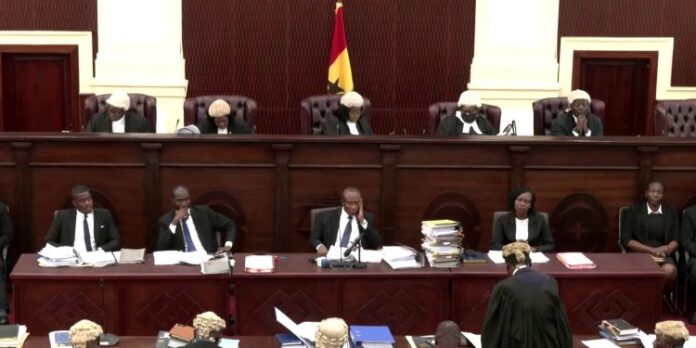|
Getting your Trinity Audio player ready...
|
The Supreme Court is set to deliver its judgment on two pivotal lawsuits challenging the legality of the Human Sexual Rights and Family Values Bill, commonly referred to as the anti-gay bill.
The decision, expected to shape the nation’s legal and human rights landscape, comes after months of intense public debate and political contention surrounding it.
The anti-gay bill, widely criticised by human rights groups and supported by religious and traditional institutions, seeks to criminalise activities associated with lesbian, gay, bisexual, transgender, queer, and intersex (LGBTQI) advocacy.
The bill, when assented to, will impose penalties on individuals promoting or funding pro-LGBTQI activities and even extend criminal liability to those who provide indirect support to such initiatives.
Proponents of the bill argue that it is necessary to safeguard Ghanaian cultural and family values, which they claim are under threat from what they see as the imposition of foreign ideologies.
Opponents, however, decry the bill as a violation of fundamental human rights, including freedoms of expression, association, and equality under the law.
The lawsuits challenging the constitutionality of the anti-gay bill were brought by Richard Dela Sky, a journalist and lawyer, and Amanda Odioi, an equality and inclusive advocate.
Their petitions to the Supreme Court raise two critical legal arguments stating that Parliament did not meet the required quorum as outlined in Articles 102 and 104 of the Constitution when the bill was passed.
The plaintiffs allege that these thresholds were not met during the legislative process for the anti-gay bill. They argue that the lack of quorum renders the entire process unconstitutional and, therefore, null and void.
Source: citinewsroom



